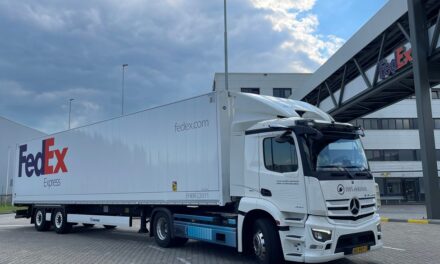
“Now is the time for every company with a fleet to join EV100”

In just a year, the number of electric vehicles on the road operated by the large multinationals in the Climate Group’s EV100 initiative has risen to 169,000 vehicles, over twice the number in the previous year, a new report from global non-profit Climate Group reveals.
Members of the EV100 initiative include An Post, Austrian Post and Deutsche Post DHL.
The number scheduled to be on the road as part of corporate and leasing company customer fleet commitments by 2030 has risen by 80% to 4.8 million – more than the number of vehicles sold in Germany every year.
The businesses in this initiative are not just changing their fleets. They are using their property portfolios – their offices and stores – to build a network of charging infrastructure that supports their staff and customers alike. There has been a boom in planned charging infrastructure this year: 6,500 locations have been committed to have charging installed, a 103% increase on last year.
There has also been an 84% increase in the number of locations with charging already installed, to nearly 2,100, and the number of individual charge points installed has increased by 79% to nearly 16,900.
These findings come from the Climate Group’s ‘EV100 Progress and Insights Report’ which is based on data from 101 major global businesses such as Siemens, Sky and AstraZeneca, covering 80 markets.
Sandra Roling, Head of Transport at the Climate Group, said “Corporate uptake of electric vehicles is on a roll. Despite the uncertainty of 2020, the business community has made remarkable progress in transitioning its fleets. The EV revolution is underway.
“With the UN climate conference COP26 due in Glasgow at the end of the year, 2021 is the year of climate action. We need businesses to lead from the front. Now is the time for every company with a fleet or an employee car scheme to join EV100 and commit to going electric.”
This year, over half of EV100 members say that they have either continued on the same trajectory or, in some instances, sped up their progress towards meeting their commitments.
Other key findings:
- 75 million metric tons CO2e emissions set to be avoided by 2030
- Tackling the climate crisis, reducing air pollution and the reputational benefits were reported by companies as the main drivers
- Companies cite challenges in procuring electric commercial and heavy-duty vehicles and lack of public charging infrastructure as their biggest obstacles to achieving their commitments
The full report ‘EV100 Progress and Insights Report: The EV revolution is here’ will be available here on publication: https://www.theclimategroup.org/ev100-annual-report-2021















